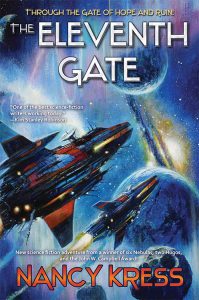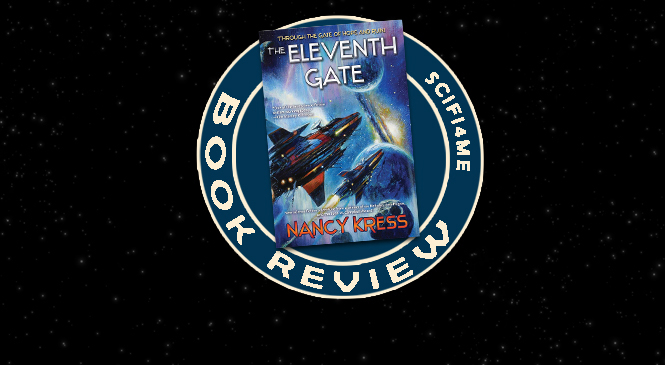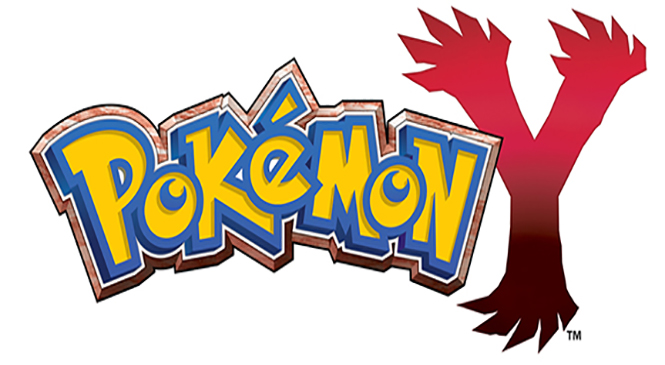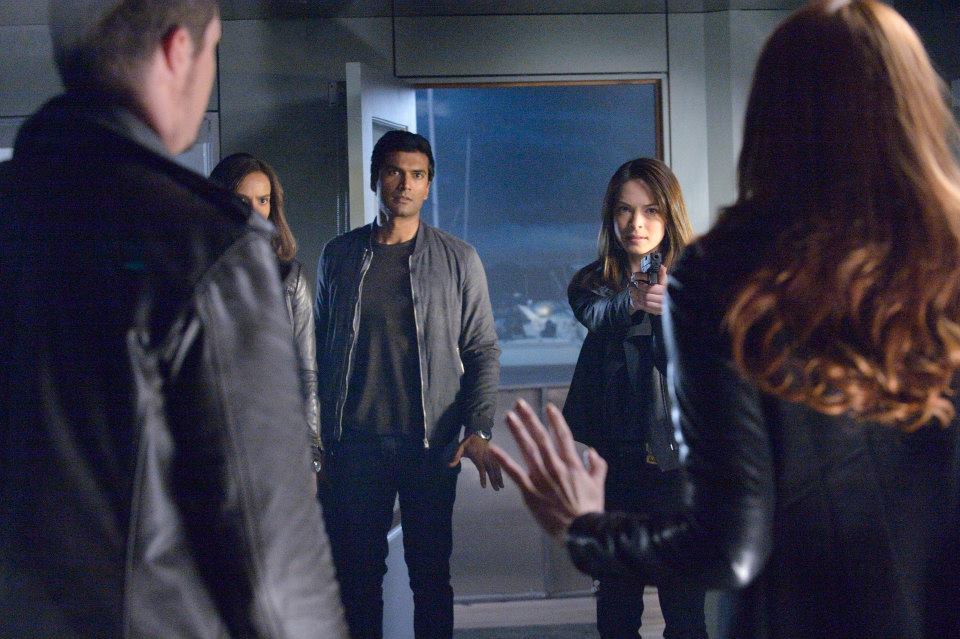Review: THE ELEVENTH GATE

 The Eleventh Gate
The Eleventh Gate
Written by Nancy Kress
Published by Baen Books
May 2020
Original Trade Paperback, 344 pages
What happens when Romeo and Juliet accidentally set off a War of the Roses between the Hatfields and McCoys with bioweapons and Stargate technology?
Following the collapse of civilization on Earth, two dynasties have set up shop across numerous worlds. The Peregoy family is a corporatocracy controlling several planets and employing pretty much everyone who’s a “citizen”. Meanwhile, the Landrys have established a society based rigidly on classic Libertarian values — or at least, Libertarian “live and let live” values as presented in the book. And it’s these rivals who have to deal with getting drawn into a war neither of them wanted or expected. And it’s all because two people thought they knew better and could manipulate them into becoming allies.
Nancy Kress delivers a solid story where there’s no absolute villain, just a lot of people trying to make the best of a bad situation, and a few who are trying to keep it from going bad to worse. Even though there are elements we’ve seen before in other stories — the Stargate shows up in Stargate, Babylon 5, and the Honor Harrington stories, for example — the combination of elements is unique enough that it doesn’t feel like a rip-off. In this day and age, it’s a challenge to come up with anything unique anymore, but Kress does so with her rival civilizations. Besides David Weber, has anyone else fully invested in speculating what a fully Libertarian society would look like? We also get a little bit of a look at the Communist/Socialist perspective with the “Compatriots” of the Movement, so no ideology is spared a little cross-examination here.
Kress takes those starting points and offers an examination of politics, but she rightly does it within the context of the story, with commentary on each society coming from those who live there. And it’s good that these characters all learn a thing or two about their own viewpoints by the time we get to the end. Her inclusion of two students of history — Luis Martinez and Caitlin Landry — also plays to the notion that “those who do not learn from history are doomed to repeat it” without being too overt and preachy about it. This is a good thing.
At the center of the story, Phillip Anderson seems like a bit of a crackpot at first. His quest for a transcendental existence is reminiscent of the “ascension” of Stargate or the Star Child of 2001, but it’s a little more complex than that within the bounds of the story. Yes, there’s a higher, non-corporeal existence, but it comes with a price, and there are still limits. There is no deus ex machina here. The humans still have to fend for themselves.
Outside of one over-the-top character (I won’t spoil it), the main cast are all nuanced and multi-dimensional. They have priorities that align with their individual goals and plans, but they also aren’t absolutes. As the situation spirals, they all react in ways that feel earned, not contrived. Along the way, there are some good character moments, questions of priorities and worldviews, and self-examinations that feel organic.
In the end it’s a satisfying story that leaves a few options for a sequel, but also can be perfectly fine as a one-and-done story.
![]()



